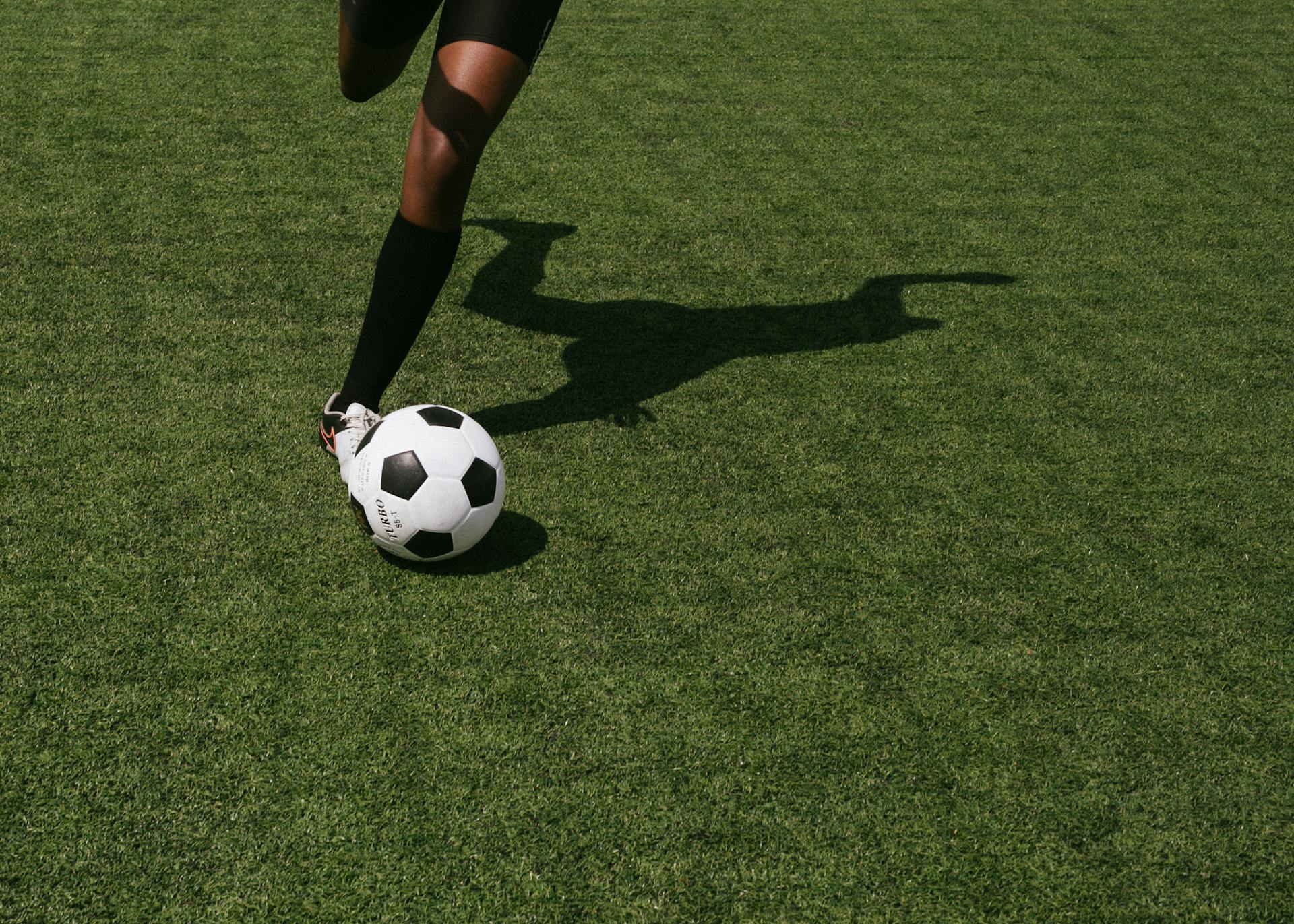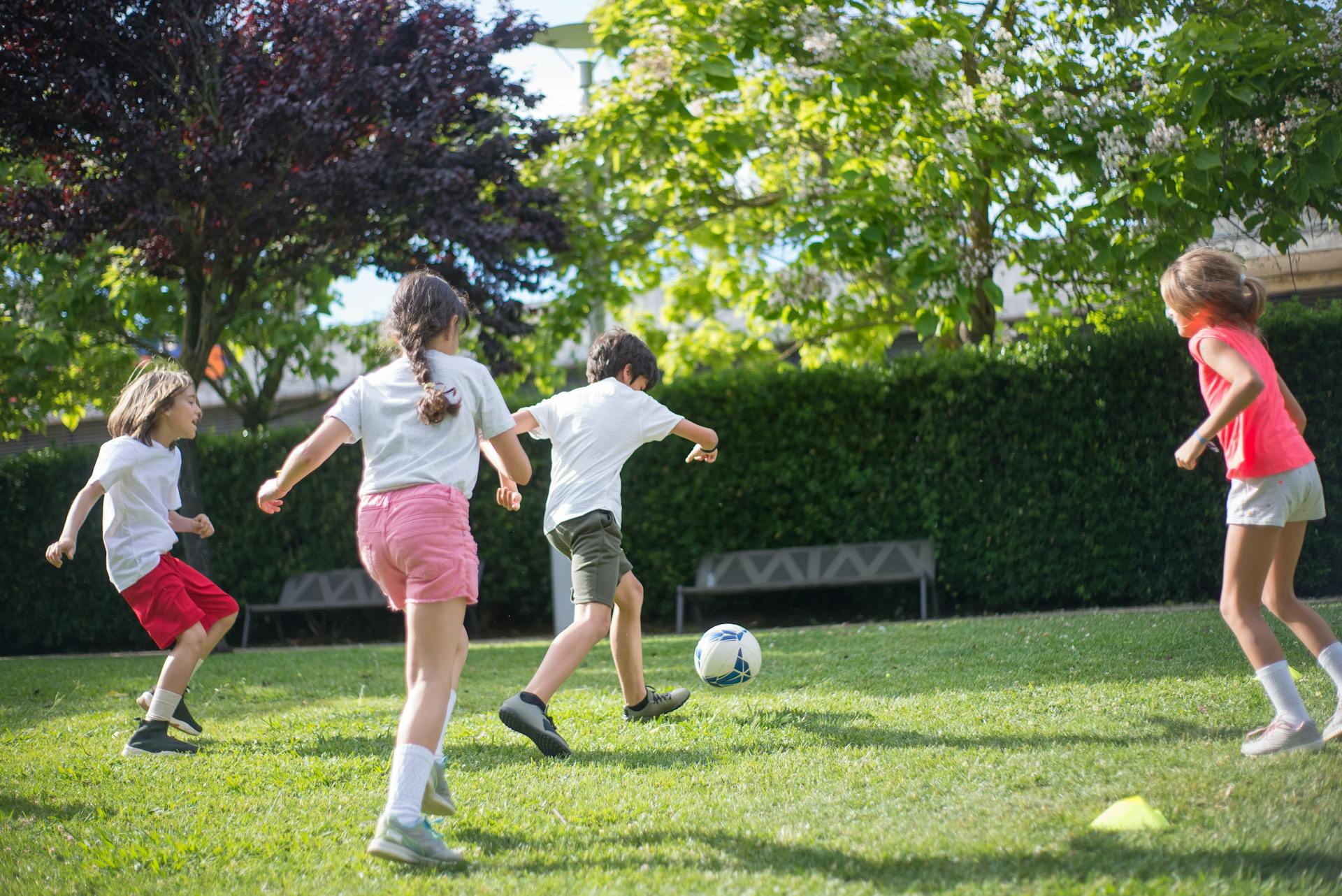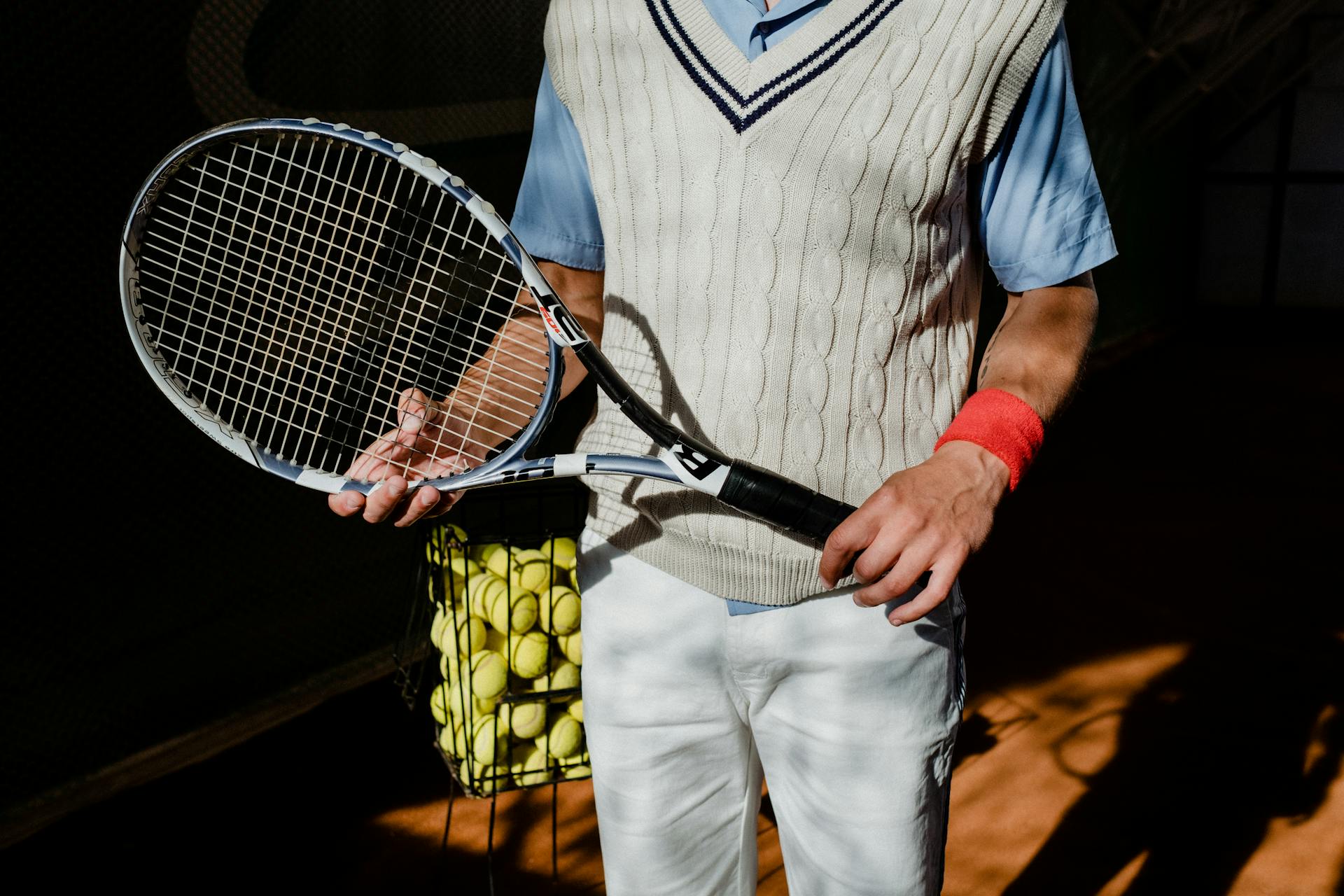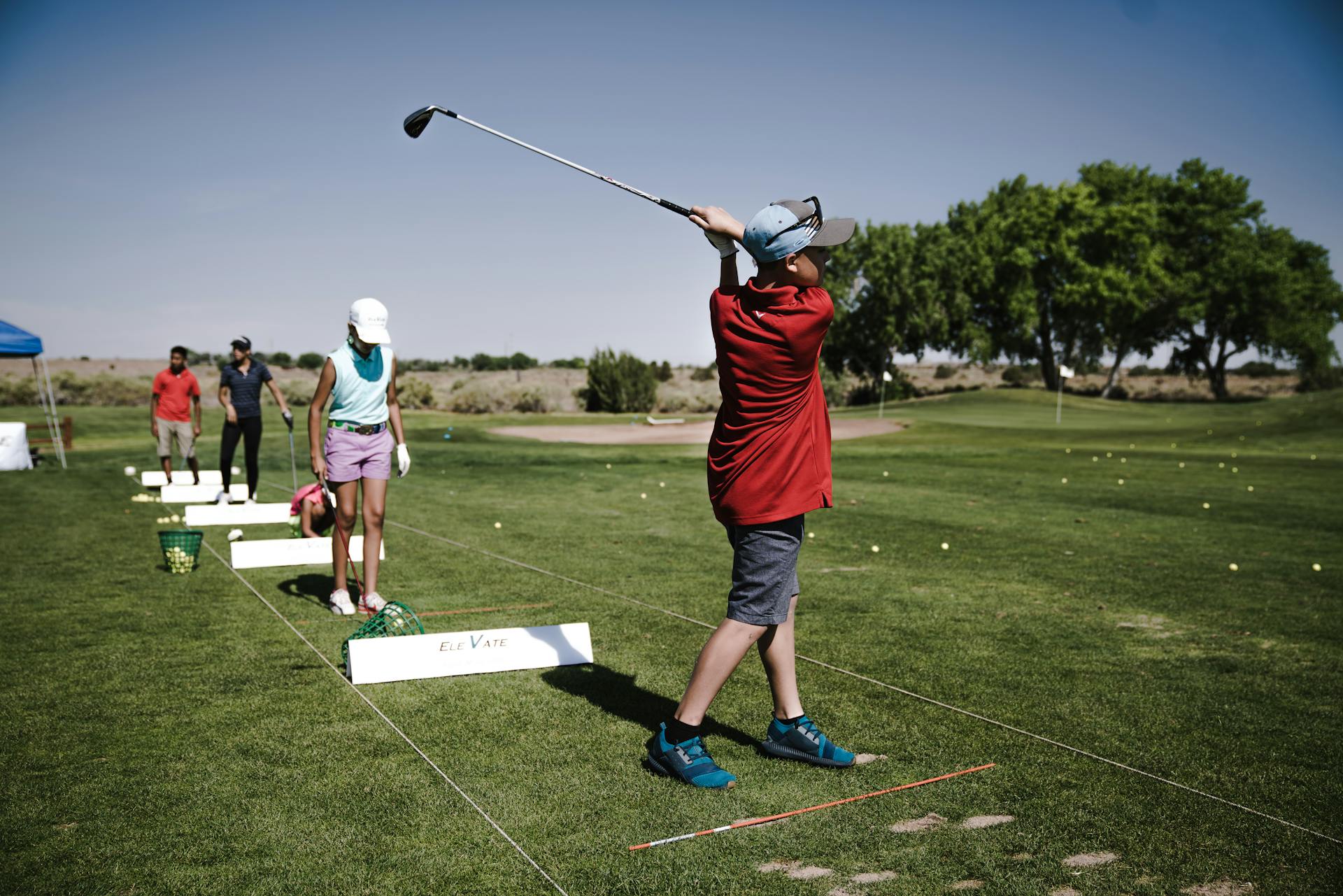
If you're a football fan, you know that the size of the ball can make all the difference on the field. But did you know that there are actually several different sizes of footballs used in different levels of play? From youth leagues to professional games, understanding football ball sizes is crucial for both players and fans alike.
In this article, we'll provide a helpful chart outlining the various sizes of footballs used in different settings. But we're not just here to talk about sports – we're also here to discuss how you can add your voice to ours in advocating for change. As fans and players, we have a unique platform to speak out on important issues facing our communities and our world. By coming together and sharing our voices, we can make a real impact on the world around us. So let's dive into this important conversation – and learn a little bit about football along the way!
Experience an Exciting Surprise Headed Your Way!
Are you a football fanatic looking for something new in the sport delivered straight to your doorstep? Look no further, because we have an exciting surprise headed your way! This month, we are offering a special promotion on football ball sizes with a handy chart to guide you through the selection process.
Nothing more, nothing less. Our goal is to make choosing the right football size simple and enjoyable. Whether you're playing for fun or competing at a higher level, our chart will help ensure that you have the perfect sized ball for your needs. Don't miss out on this opportunity to upgrade your gear and take your game to the next level!
Choosing the Perfect Football - Your Ultimate Guide
Football is an exciting game, and choosing the correct football ball size is essential for a safe development of players. Different age groups have different needs when it comes to football sizes. The standards set by football federations ensure that players use the right size of ball that matches their age.
Football ball sizes vary based on the age of the player. Using a larger ball may cause injury due to the impact on the player's body. Age-matching helps prevent injuries and ensures safer impact during play. Younger players using a smaller size reduces the risk of injuries and allows them to develop their skills appropriately.
There are varied football measurements in the market today. When choosing a football ball size, one should refer to a chart that guides on weight and dimensions that match their age group. For instance, a five-year-old child can start playing football using a lighter and smaller-sized ball than an adult-sized ball used by senior players. Choosing the correct football measurements guarantees an entertaining game with excitement irrespective of age or skill level.
For more insights, see: Badminton Court Size
Uncover How Your Age Affects Football Sizes

Age plays a significant role when it comes to choosing the right football size. Children start playing football at a young age, and their body size determines the suitable football size. As they grow older, they move up in age groups, and the ball size increases accordingly. A long time ago, there was only one standard football size for all ages, but now there are different sizes based on age group. To avoid injuries or discomfort during play, it's essential to choose the correct football size for your age.
Related reading: Size Generator
The Five Football Size Chart

The football size chart contains details related to the different sizes of football balls available in the market. The size 1 ball is traditionally constructed in a twelve-panel dodecahedron shape and is the smallest official football size. Although it exceeds 20 inches, its primary purpose is for skills training and not for actual football matches. Size 1 balls serve as a memory token, souvenir collection or for young children aged 3-6 years old.
Size 2 football balls, also known as midi balls, have a weight of about 280 gm and are suitable for achieving ball control due to their relatively lighter weight. Coaches suggest using a size 2 generally because it provides better ball control than regular football balls. It's perfect for fine-tuning foot skills and focusing on solid contact with the ball. Size 2 balls are ideal for kids aged between six and eight years old.
Size 3 football balls are the smallest official match game size used by young children aged nine to eleven years old. They measure around 11-12 ounces and are typically costlier than regular practice balls due to their true flight performance reliability, ultimate control, high-quality construction, and match-approved specifications. Interestingly enough, size 4 football balls were once considered standard football sizes before the introduction of size five during the 1970 World Cup by adidas sportswear manufacturers. Nowadays, futsal football is played indoors on tiled floors using size four or five depending on age group or league requirements.
1. What is so special about football size?
The size of a football ball has a direct effect on how easy it is to play football. A size 3 football ball is perfect for younger players, while a size 5 ball is the standard for adult players. However, football ball sizes vary based on age, personal skills, and varying size-based standards. Choosing the right football ball can make all the difference in how you feel when you play - whether it's felt instantly or gradually moved up to from a basic size. Check out our current ball size chart to find your perfect fit!
Recommended read: Play Pickle Ball
Importance of Choosing the Right Youth Football Gear

The importance of choosing the right youth football gear can make a huge difference in how well a child plays on the field. Football size is a big deal when it comes to the actual football, so it's important to choose the correct youth football sizes for each age group.
Wilson is the primary company that produces balls for the NFL and other official governing bodies. They produce balls in various sizes such as size 5, which weighs around 10 ounces, and size 6, which weighs around 11 ounces. These small spreads in weight may not seem like a huge deal, but for a 10-year-old kid just starting out, it can make all the difference in their confidence and performance on the field.
One of the main reasons why correct youth football sizes are so important is because using an adult-sized or an NFL ball can be detrimental to a child’s development. For example, an NFL ball is larger and heavier than a regular youth-sized ball, making it difficult for children to hold and throw properly. So, when choosing football gear for your young athlete, make sure to consider their age group and select appropriately sized equipment from reputable brands like Wilson or Kevin Krysiak.
1. It Makes the Game Playable
Choosing the right size football is crucial to the game's playability. Using a ball that is too big or too small can ultimately make the game unplayable for players of all ages, from a 6-year-old quarterback to seasoned professionals. It may seem like a basic concept, but using the wrong size ball can make even simple tasks like throwing and catching extremely difficult. Check out our chart to ensure you have the correct size football for your next game.
2. It Allows Kids to Grow Into the Equipment
An important aspect of youth football is having the right ball size. It allows kids to grow into the equipment, which makes holding, carrying and throwing the ball easier as they improve their skills. By having the correct size ball, it also keeps kids interested in coming back to the sport year after year. Check out this chart for more information on football ball sizes.
3. It Allows Kids to Learn in Stages
When it comes to playing football, young football players need to learn in stages. Football ball sizes with charts help them understand which size ball they should use as they progress in their skills. From throwing passes to playing as a running back, there is a specific size ball that will help them excel and develop their abilities. Check out our chart to see which ball is right for your child's stage of development.
Frequently Asked Questions
How do football sizes change at each level of the sport?
Football sizes increase as the level of play increases. Youth footballs are smaller than high school, college and NFL footballs which are all regulation size.
What age is the best age to play football?
Children as young as 5 years old can start playing football, but the best age to begin is between 7-9 years old when they have developed better physical coordination and cognitive abilities.
What size football do under 10s use?
Under 10s use a size 3 football.
What is a youth size football?
A youth size football is a smaller version of a standard football designed for young players. It is typically lighter and easier to handle, making it perfect for kids learning the game.
What are the dimensions of big game footballs?
Big game footballs are typically 11 inches long and 22 inches in circumference. However, the exact dimensions may vary depending on the specific brand and type of ball.
Featured Images: pexels.com


